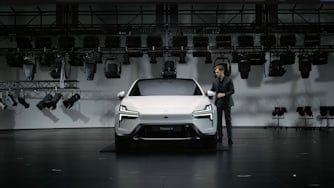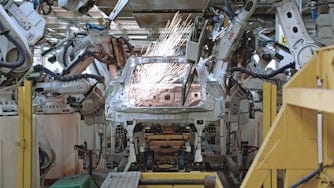Research Project: FAD-EV
When we released the LCA report for our electric performance fastback, Polestar 2 we decided to put all our cards on the table. A Life Cycle Analysis takes a holistic look at the carbon impact of a vehicle over its entire life. We believe it is essential to be more transparent, so with such a strong hand, we’ve decided to play those cards again.

A research project called FAD-EV (Future Adaptive Design for Electric Vehicles) is looking into using the LCA report to develop ideas for business modelling for a circular economy. The project, which started in September, will continue for two years together with RISE (Research Institutes of Sweden), and other industry partners, including Volvo Trucks. It is funded via the Swedish Energy Agency
This project uses the Polestar 2 LCA report data in several ways. One of them is by looking into how to rethink the design approach to create products which are more sustainable over their lifetimes. Such as a more modular design, which would allow components that are likely to show wear and tear, or that are sensitive to obsolescence, to be easily replaced and upgraded. Rather than only focusing on how the resources are sourced or how they can be recycled, this project looks at how to make the most out of the product once it is produced. In other words, to improve utilisation, maintenance and upgradeability.
The cards are, once again, on the table.


